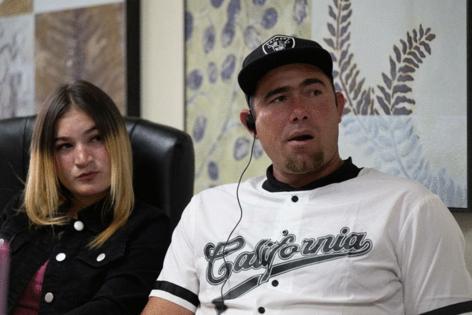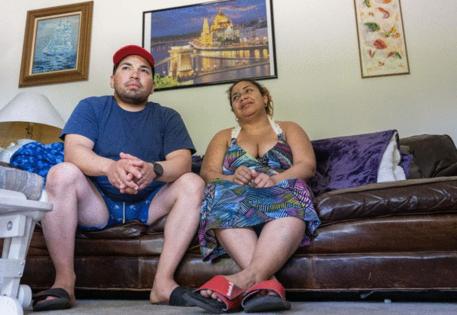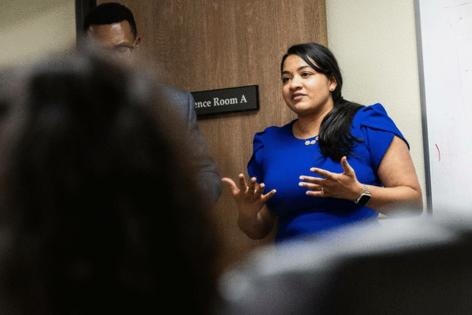With false promises, Florida sent migrants to Sacramento a year ago. Where are they now?
Published in News & Features
SACRAMENTO, Calif. -- On a recent sweltering June afternoon, Jorge Gil Laguna smiled as he walked into his shoddy motel to greet Olglaivis Barrios.
Markers of their last year in Sacramento surround the young Venezuelan couple. Heaps of donated clothes, shoes and purses in the corners. Barrios’ laptop, gifted to her last July, lay on the small dining room table. And a framed photo of a classic blue car, given to Laguna by a former employer, hung on the wall.
But in his hand, Laguna, 34, held their most important item yet: paperwork providing temporary protected status. The designation allows the Venezuelan to legally stay and work in the United States until April 2025.
“If I was working without one, imagine now,” Laguna said, before grinning. “It’s time to work like a donkey.”
This legal permit has the potential to provide stable work opportunities, allowing the couple to move out of this Rancho Cordova motel, where housing costs $72 a day. They also hope to send more money back to their three children and Barrios’ mother, who is caring for them in Venezuela.
Just more than a year ago, Laguna and Barrios, 29, doubted this day would come.
They were among the 36 Latin American migrants who unknowingly boarded planes for Sacramento and promised free housing, high-paying jobs and help with their immigration cases. Instead, the flights, under the direction of Florida Gov. Ron DeSantis, left the migrants stranded in California and at the center of a political battle over immigration.
Their arrival elicited national headlines, public outrage from state officials and a community-wide response, largely shouldered by nonprofit and faith-based organizations. The attention eventually faded away and federal, state and county governments failed to provide resources. In this void, groups and volunteers have borne the unexpected costs of helping the migrants.
“If you look at where the time, resources and volunteers came from, it was local organizations figuring it out,” said Jessie Tientcheu, the CEO of Opening Doors, a nonprofit that provided some migrants with short-term housing.
Despite these challenges, members of the group are likely better positioned than most migrants who have entered the country in recent years. The organizations that provided stipends and free housing also emphasized the importance of building community relationships. So today, months after formal aid subsided, help finds those who chose Sacramento as their home.
...continued
©2024 The Sacramento Bee. Visit at sacbee.com. Distributed by Tribune Content Agency, LLC.
















Comments